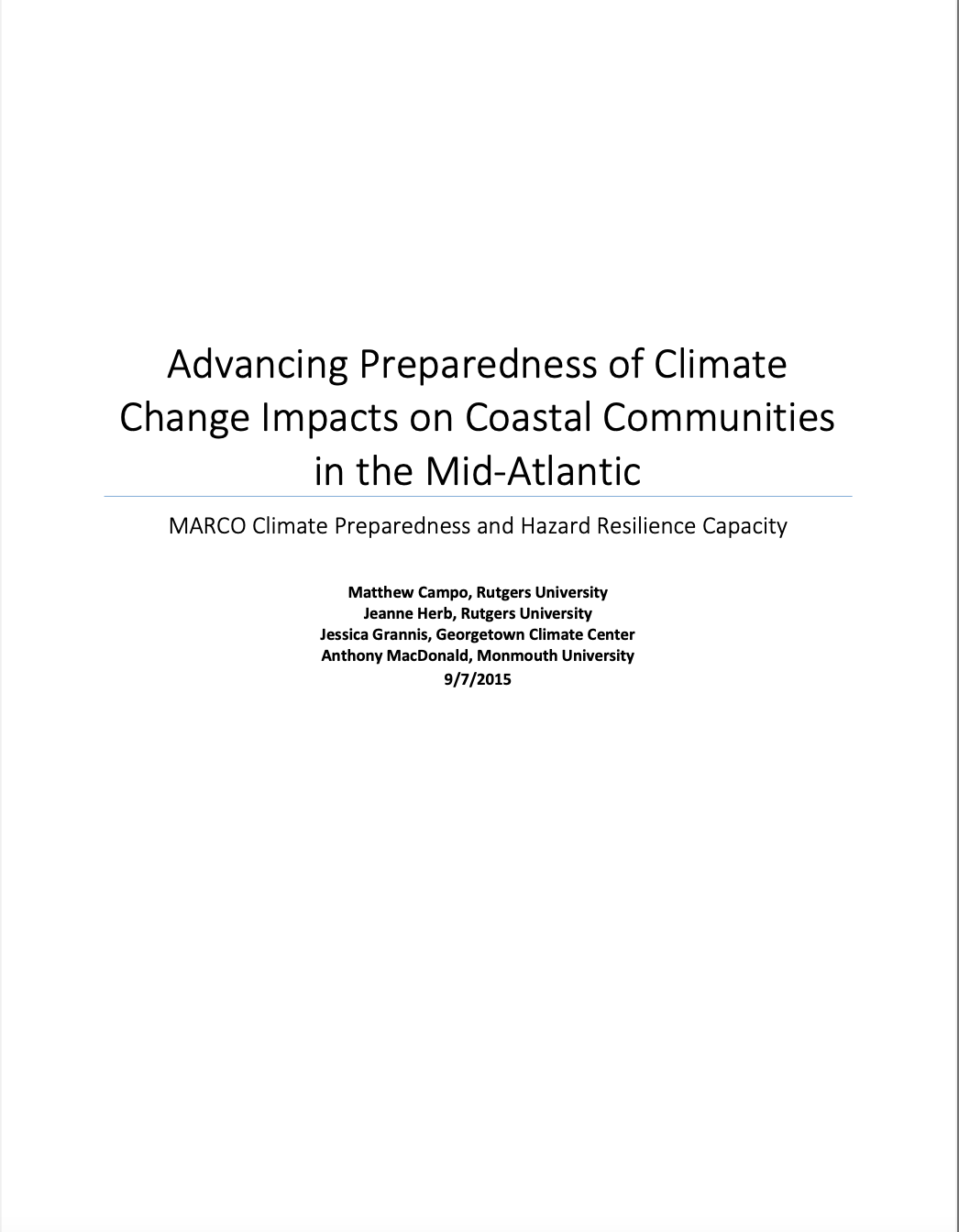The Governors of New York, New Jersey, Delaware, Maryland, and Virginia formed the Mid- Atlantic Regional Council on the Ocean (MARCO) in 2009 to address shared regional priorities to improve ocean health, quality of life, and the economic vitality of the Mid-Atlantic region and provide a collective voice. MARCO priorities, in addition to adapting to climate change, include protecting marine habitats, improving water quality and supporting development for offshore renewable energy. This report provides the results of the MARCO Climate Change Adaptation Team’s (CCAT) assessment of regional assets within MARCO’s geographic boundaries. The four assets, beaches, nearshore habitat, offshore habitat and marine terminals, were selected based on an analysis of MARCO’s mission priorities, geographic scope of governance, and potential transboundary impacts. A research team, including members of Rutgers University, Georgetown Climate Center and Monmouth University, worked with the CCAT to categorize trans-boundary impacts (i.e. where climate change impacts on assets have the potential to create affects across two or more state boundaries) in three ways: economic Impacts, ecological Impacts, and social/cultural impacts.
Advancing Preparedness of Climate Change Impacts on Coastal Communities in the Mid-Atlantic: MARCO Climate Preparedness and Hazard Resilience Capacity
Citation:
Advancing Preparedness of Climate Change Impacts on Coastal Communities in the Mid-Atlantic: MARCO Climate Preparedness and Hazard Resilience Capacity. A report to the Mid-Atlantic Regional Council on the Oceans. Campo, Matthew; Herb, Jeanne; Grannis, Jessica; MacDonald, Anthony: September 7, 2016. Rutgers University.
